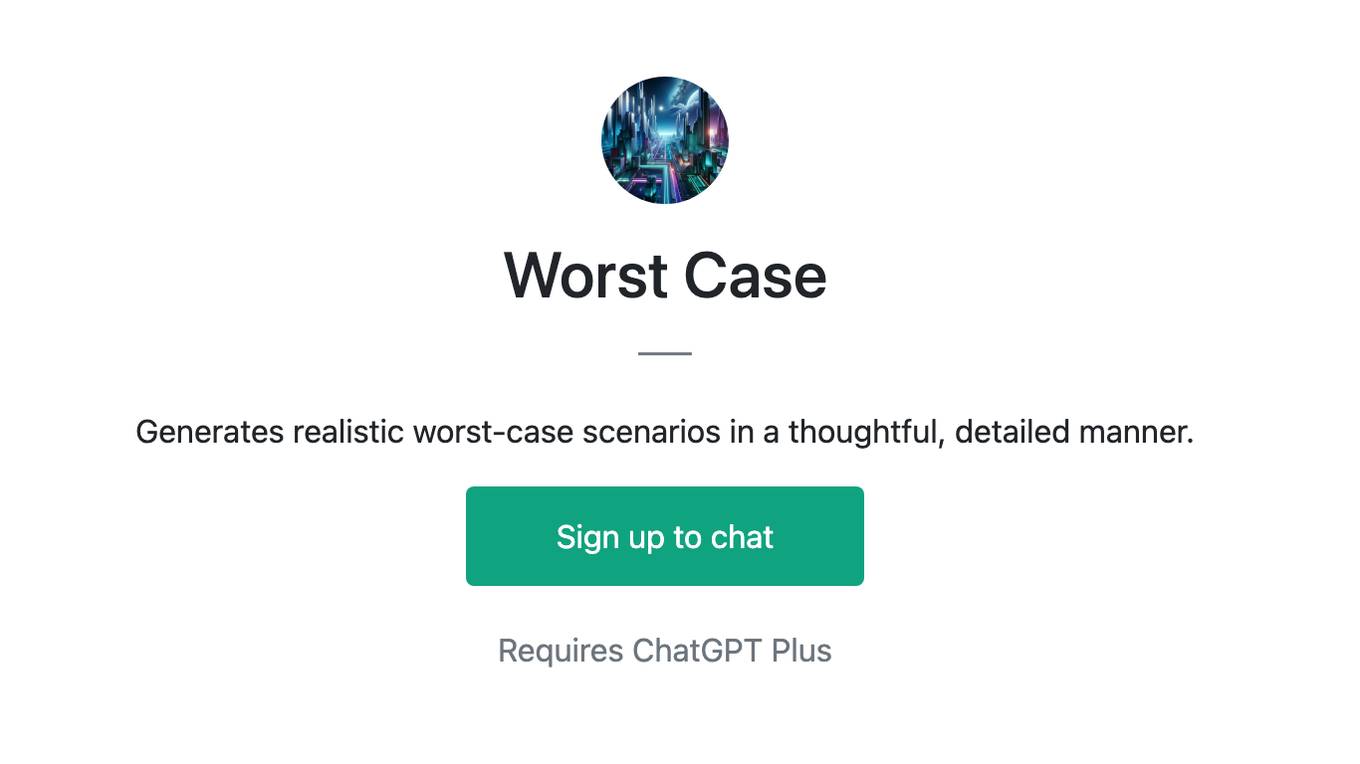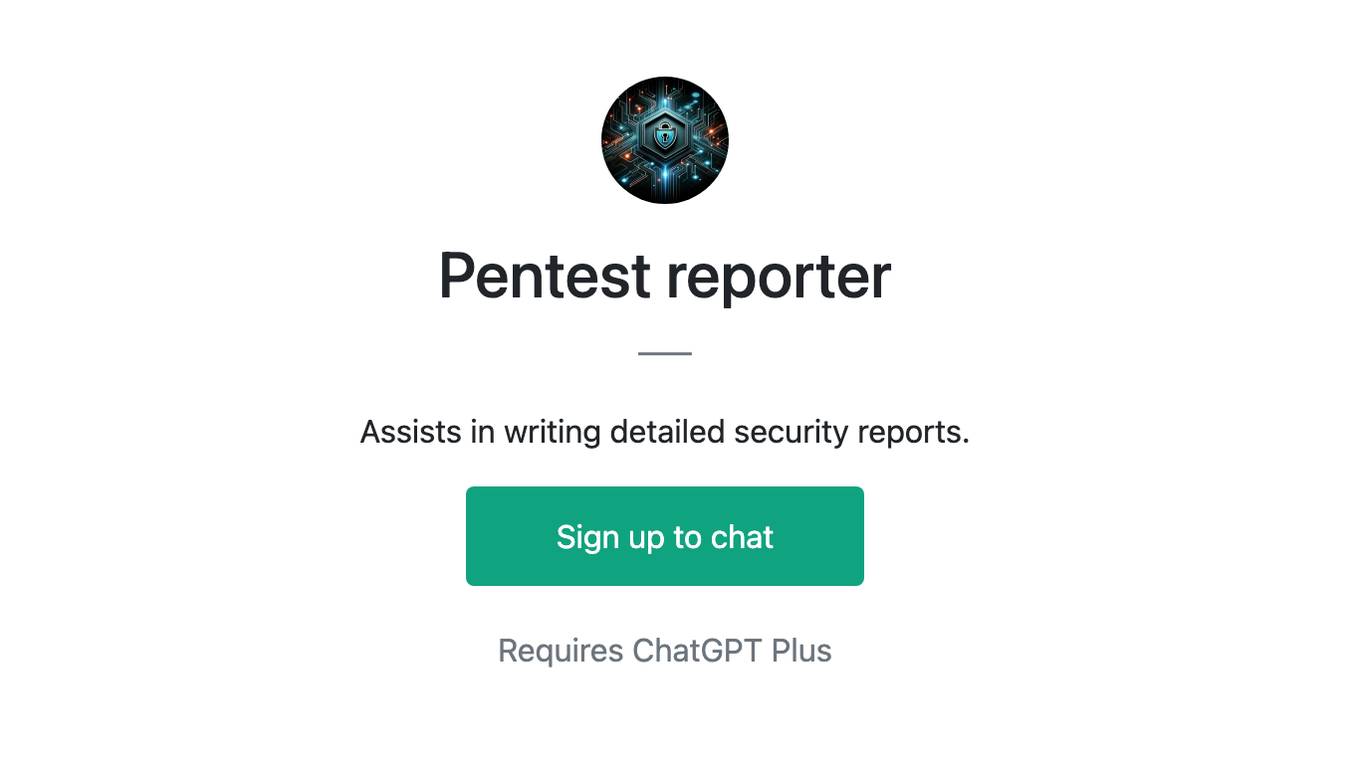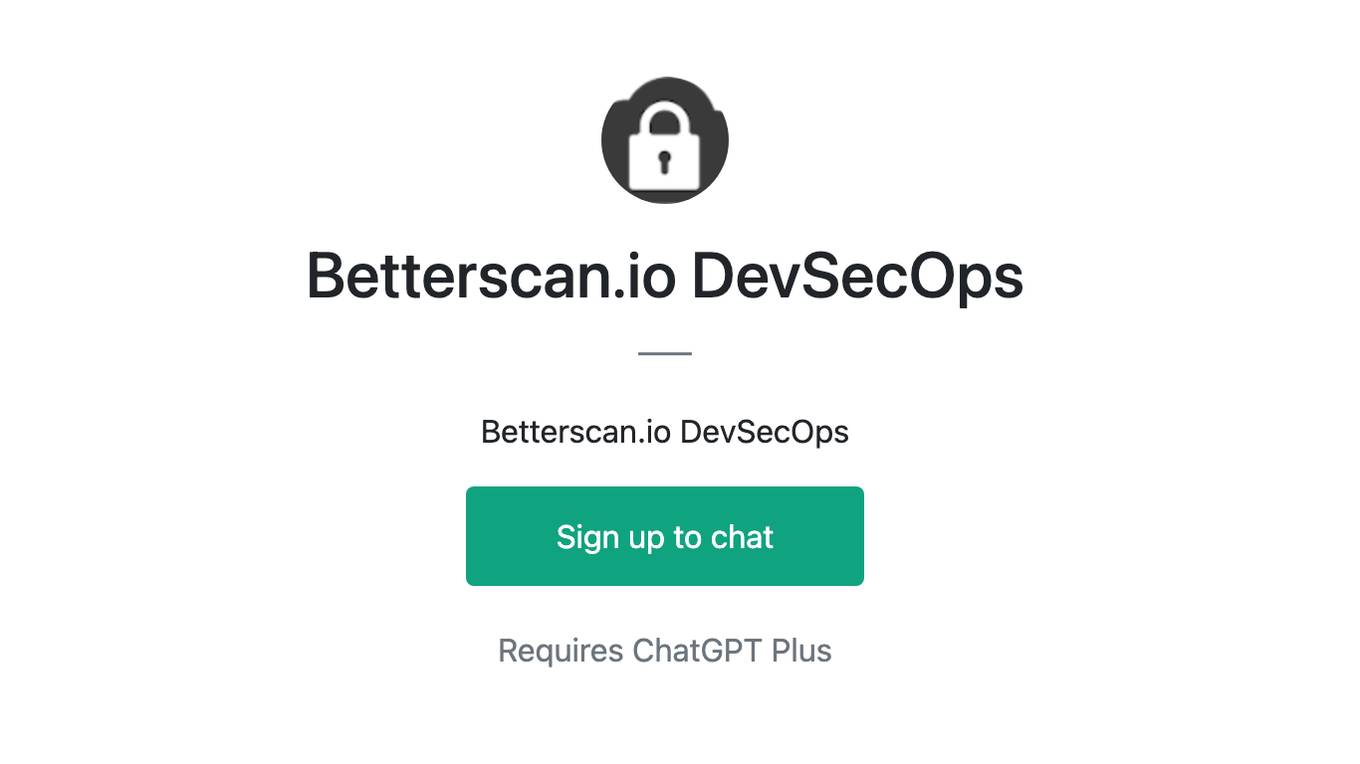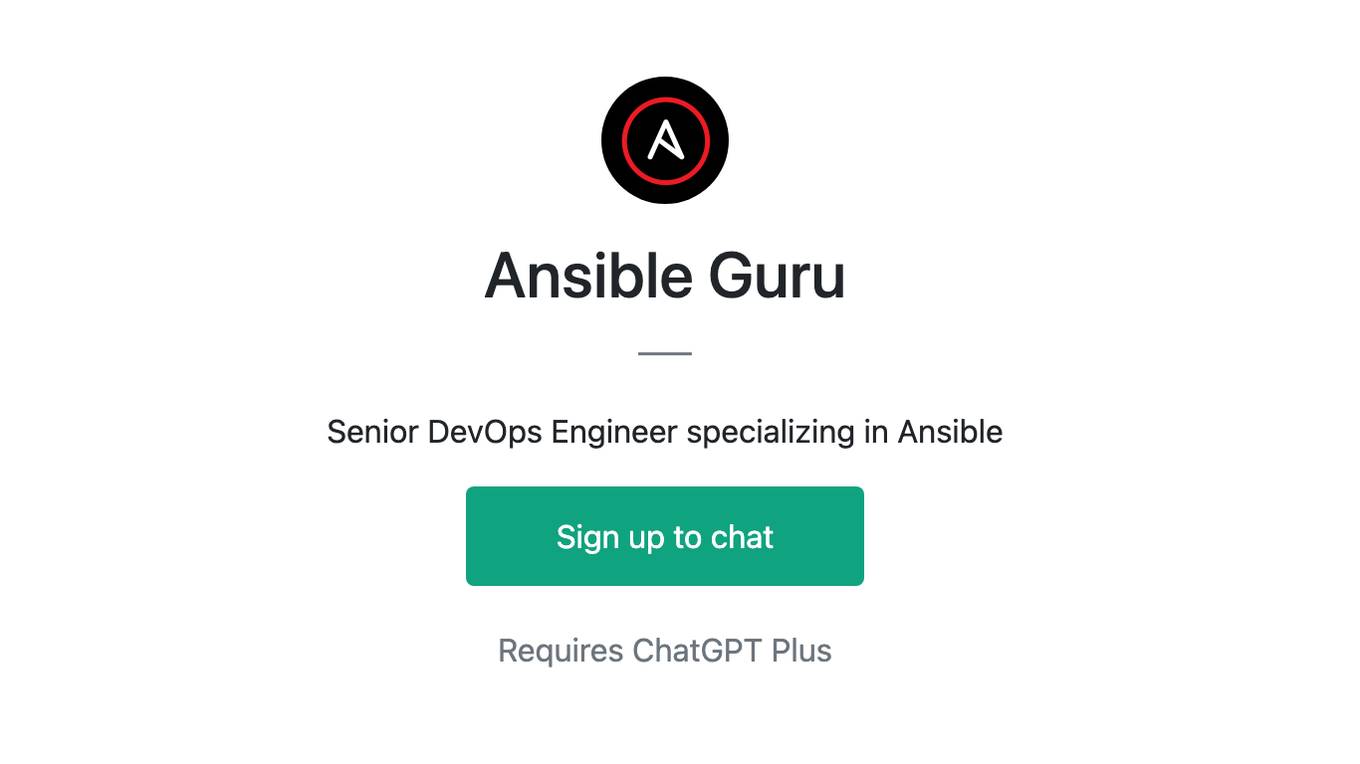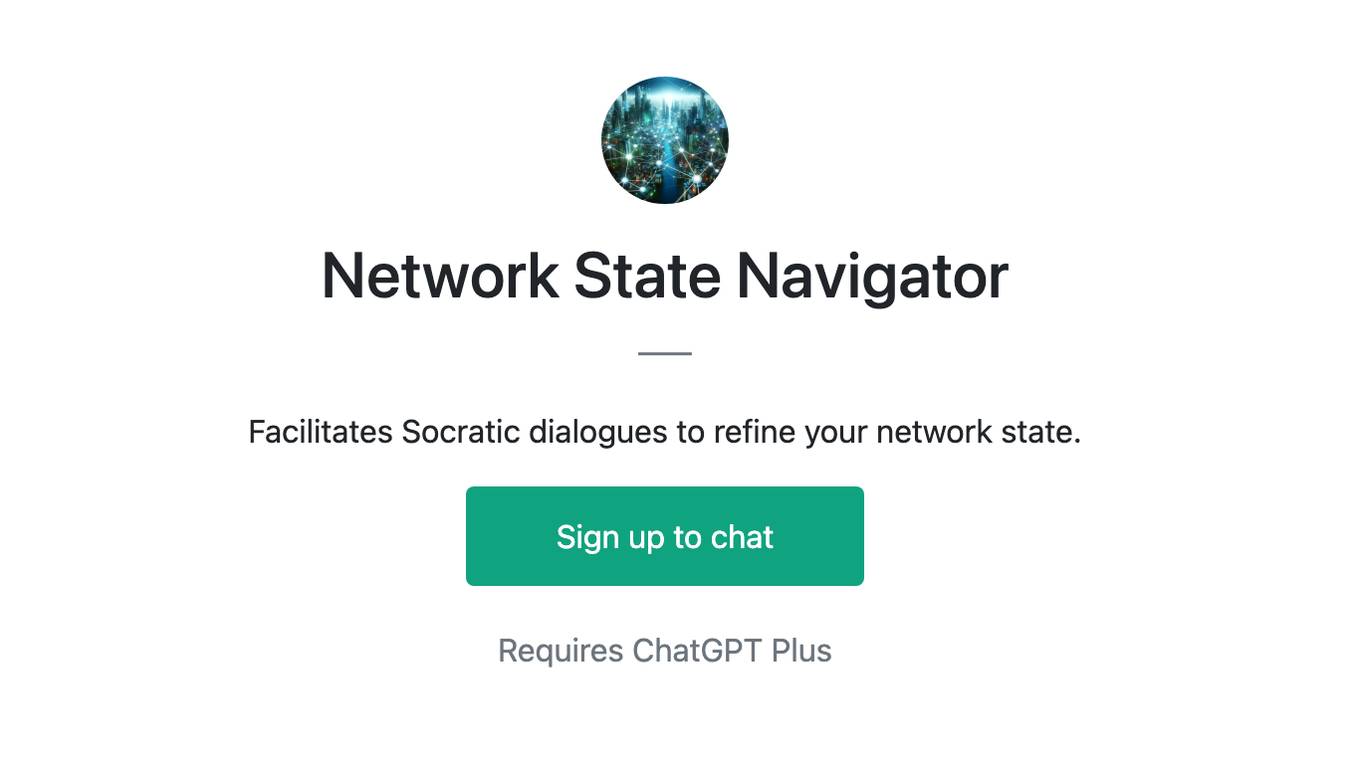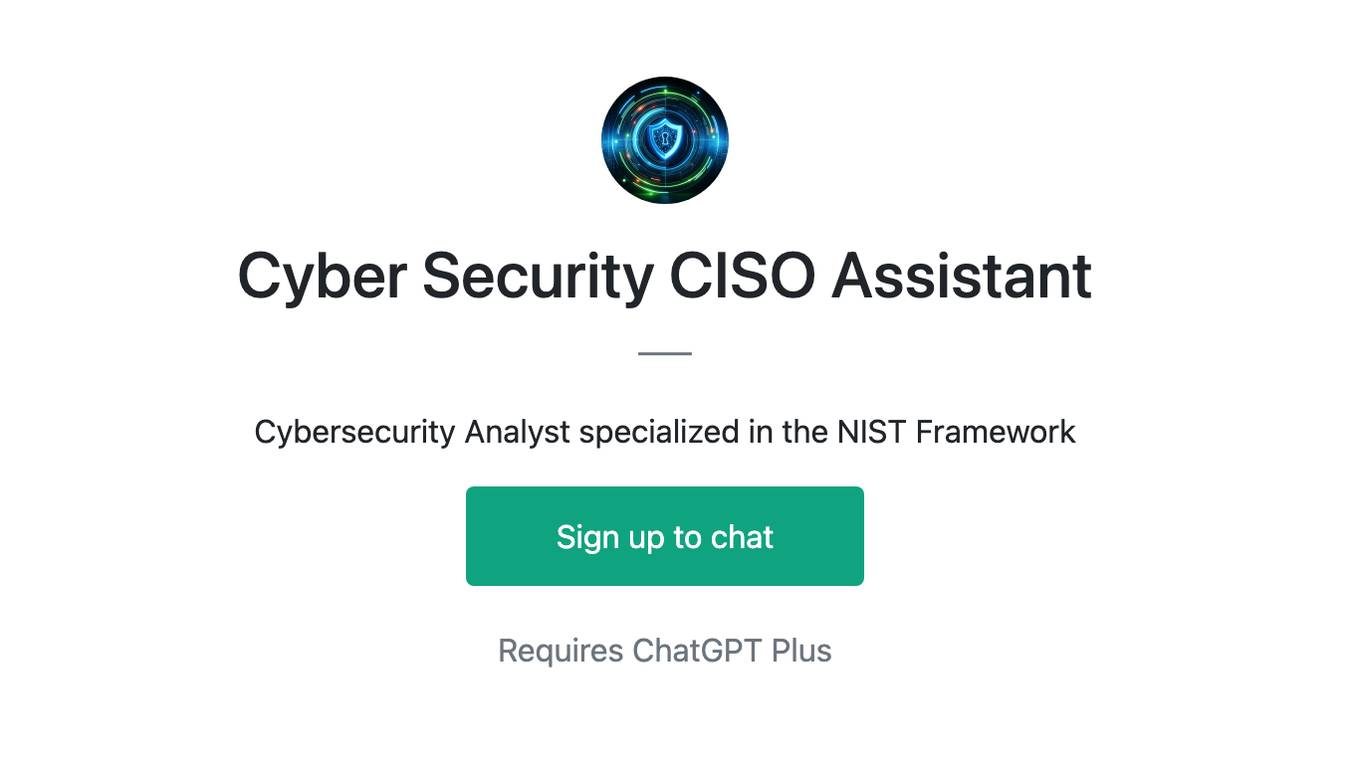Best AI tools for< Manage Security Cases >
20 - AI tool Sites
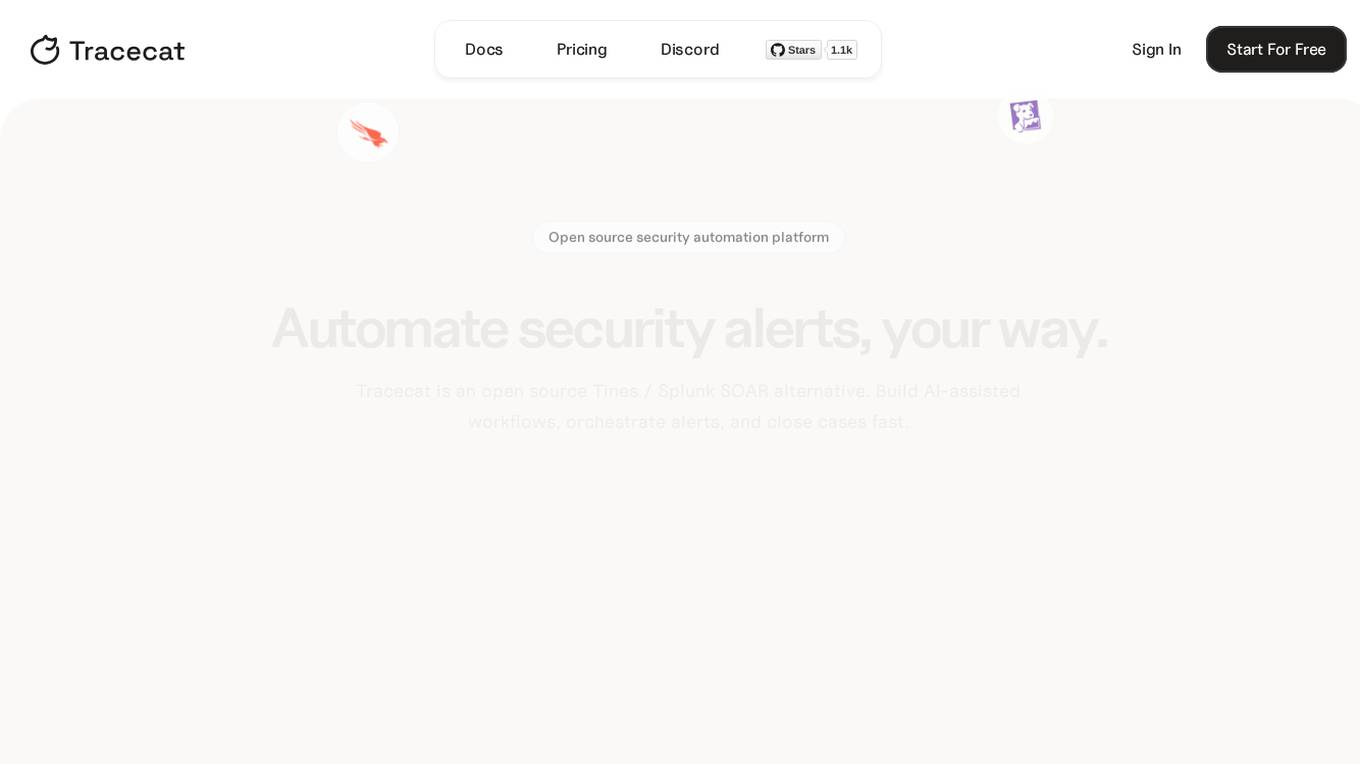
Tracecat
Tracecat is an open-source security automation platform that helps you automate security alerts, build AI-assisted workflows, orchestrate alerts, and close cases fast. It is a Tines / Splunk SOAR alternative that is built for builders and allows you to experiment for free. You can deploy Tracecat on your own infrastructure or use Tracecat Cloud with no maintenance overhead. Tracecat is Apache-2.0 licensed, which means it is open vision, open community, and open development. You can have your say in the future of security automation. Tracecat is no-code first, but you can also code as well. You can build automations fast with no-code and customize without vendor lock-in using Python. Tracecat has a click-and-drag workflow builder that allows you to automate SecOps using pre-built actions (API calls, webhooks, data transforms, AI tasks, and more) combined into workflows. No code is required. Tracecat also has a built-in case management system that allows you to open cases directly from workflows and track and manage security incidents all in one platform.

Kodora AI
Kodora AI is a leading AI technology and advisory firm based in Australia, specializing in providing end-to-end AI services. They offer AI strategy development, use case identification, workforce AI training, and more. With a team of expert AI engineers and consultants, Kodora focuses on delivering practical outcomes for clients across various industries. The firm is known for its deep expertise, solution-focused approach, and commitment to driving AI adoption and innovation.
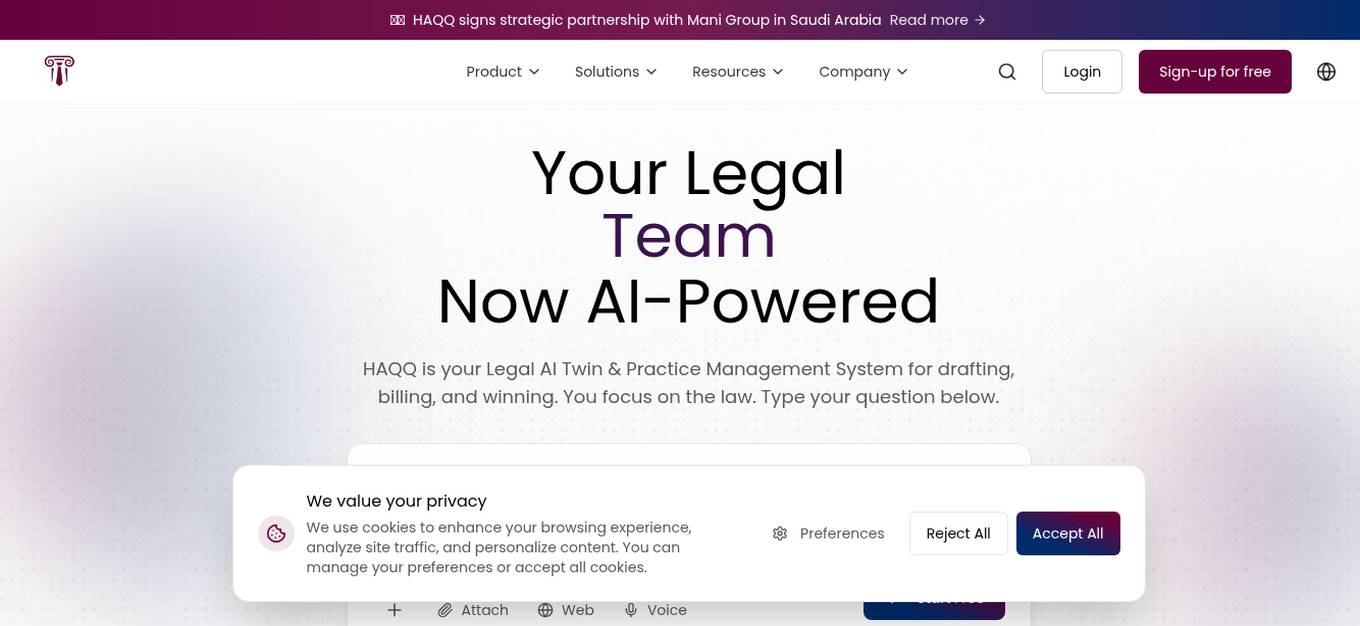
HAQQ
HAQQ is an AI-powered legal practice management tool designed to streamline and optimize legal workflows. It leverages artificial intelligence to assist legal professionals in managing cases, documents, and client communication efficiently. With features like automated document generation, smart case tracking, and predictive analytics, HAQQ revolutionizes the way law firms operate. It provides a user-friendly interface and robust security measures to ensure data confidentiality. HAQQ aims to enhance productivity and decision-making in the legal industry through cutting-edge AI technology.
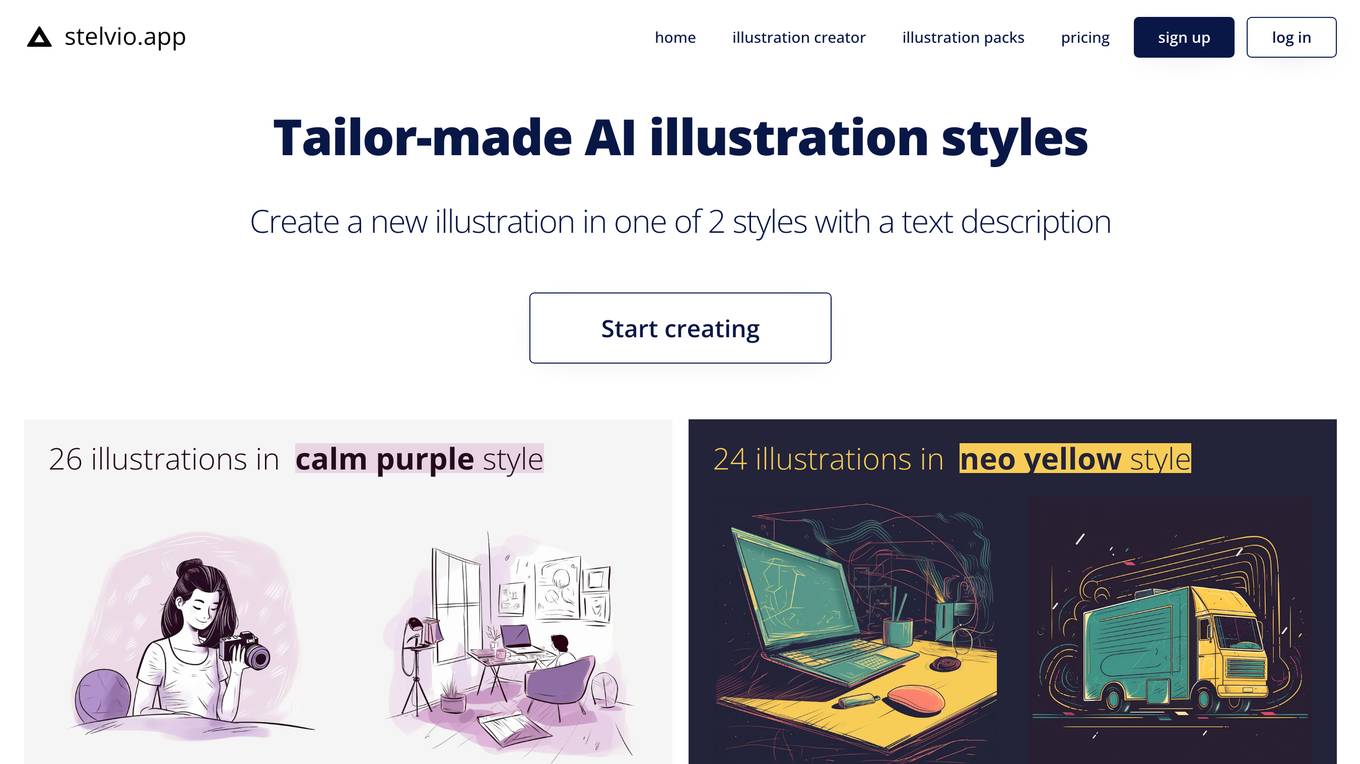
Bubble
Bubble is a visual programming platform that allows users to build web applications without needing to write code. It offers a range of features for designing, developing, and deploying applications, including data management, logic creation, collaboration tools, and security features. Bubble provides a user-friendly interface for creating custom applications tailored to specific needs, making it an ideal solution for individuals and businesses looking to create web applications quickly and efficiently.
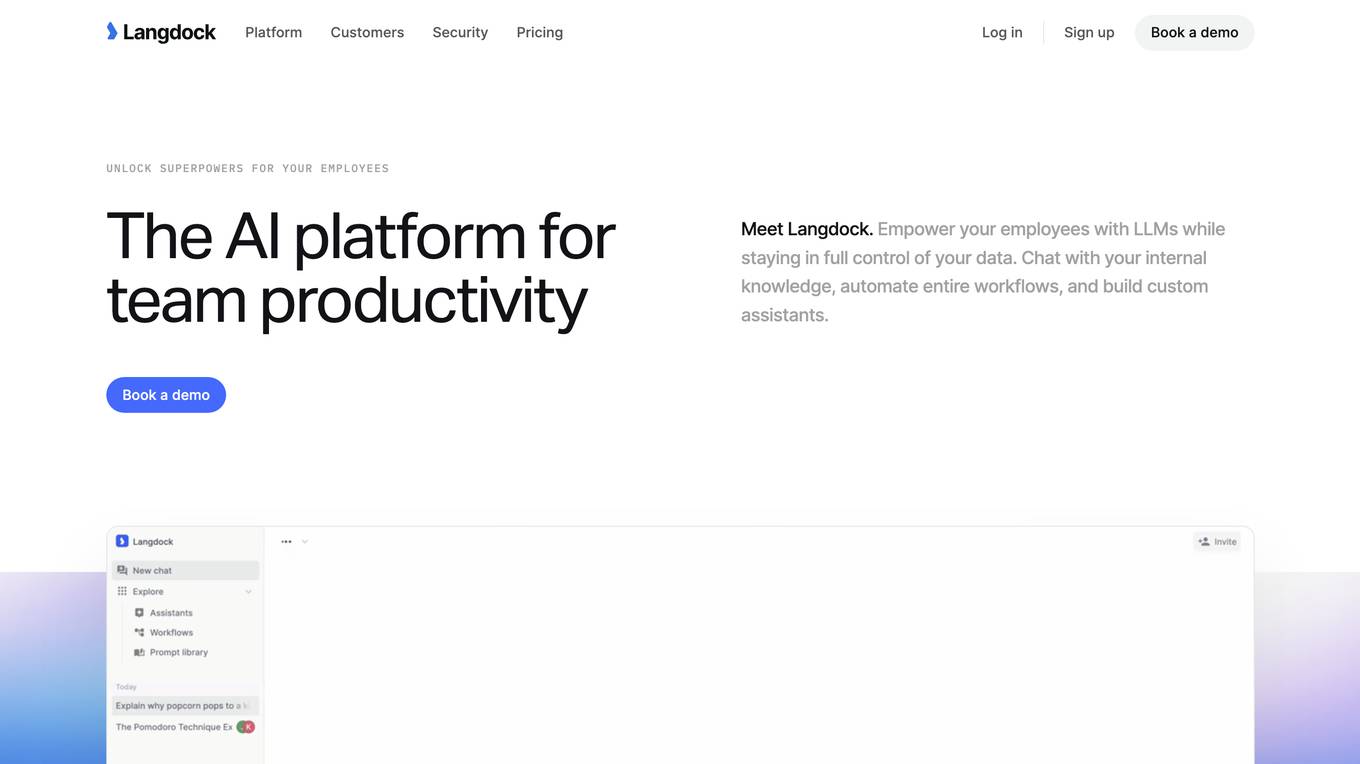
Langdock
Langdock is an all-in-one AI platform designed for companies to roll out AI to all employees and enable developers to build custom AI workflows. It offers powerful AI chat, use-case-specific assistants, AI workplace search, and API for building and running agents. Langdock provides model-agnostic, privacy-first, scalable, and measurable features, with expert support assistants for various tasks. The platform is enterprise trusted, with a focus on security and compliance. It is hosted in Europe and offers a 7-day free trial for users to get started.

spektr
spektr is an AI application that offers hyper-configurable compliance and onboarding solutions. It provides automated KYC/AML checks, continuous compliance monitoring, case management, alert automation, and AI-powered platform features to streamline compliance processes for enterprises. The platform is designed to handle routine tasks, enrich client data, and integrate various compliance tools and data sources. spektr is certified for ISO/IEC 27001:2022 and GDPR compliance, ensuring data security and privacy. It offers no-code and API integration options for flexible customization and seamless integration with existing systems.

glasp.co
The website glasp.co is a security service using Cloudflare to protect itself from online attacks. Users may encounter a block due to various triggers such as submitting specific words or phrases, SQL commands, or malformed data. In such cases, users can contact the site owner via email to resolve the issue. Cloudflare Ray ID is provided for reference.
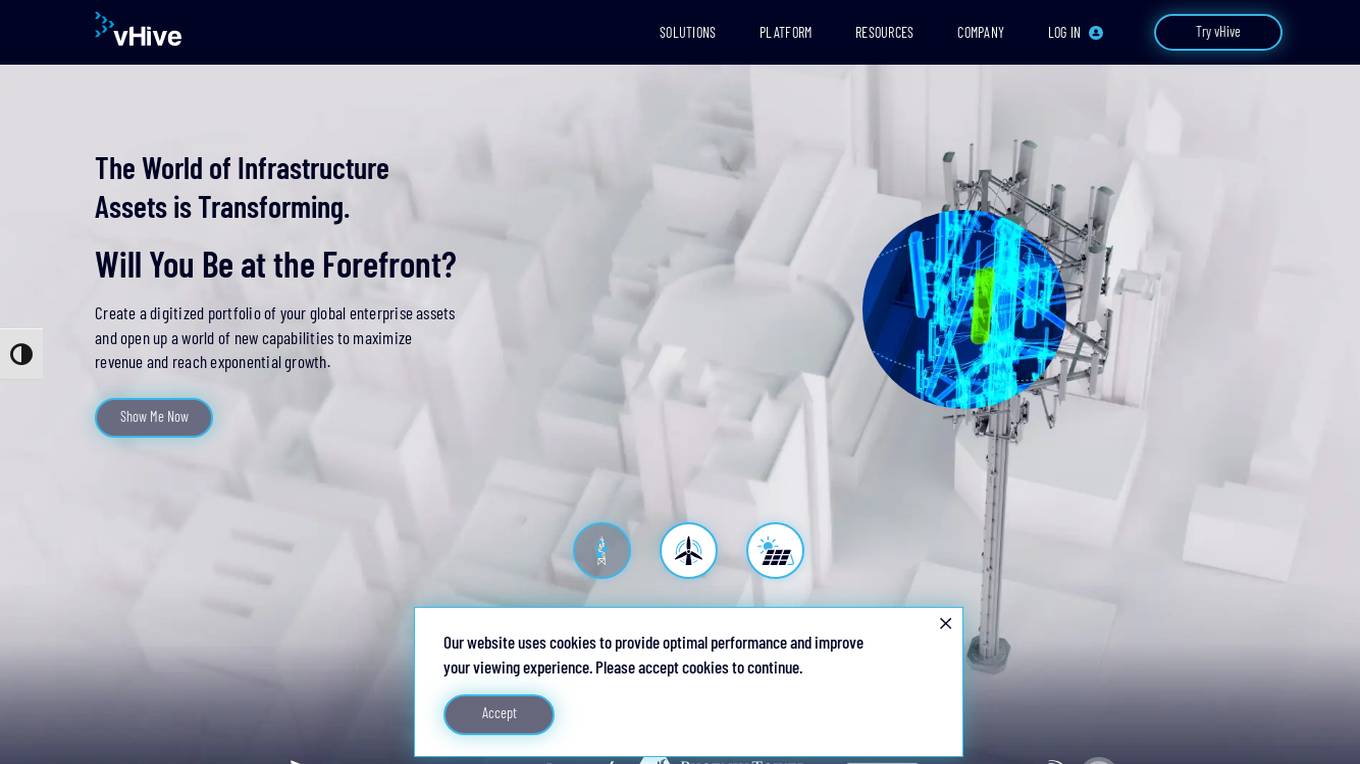
vHive
vHive is an autonomous digital twin software that enables users to create a digitized portfolio of global enterprise assets. The platform offers advanced AI analytics and insights to maximize revenue and facilitate exponential growth. With vHive, users can improve operational efficiency, rapidly digitize assets worldwide, ensure security and compliance, and scale their asset portfolio through end-to-end automation. Trusted by leading enterprises, vHive provides a user-friendly platform for collecting data and insights across various use cases, ultimately driving organizational efficiency and innovation.
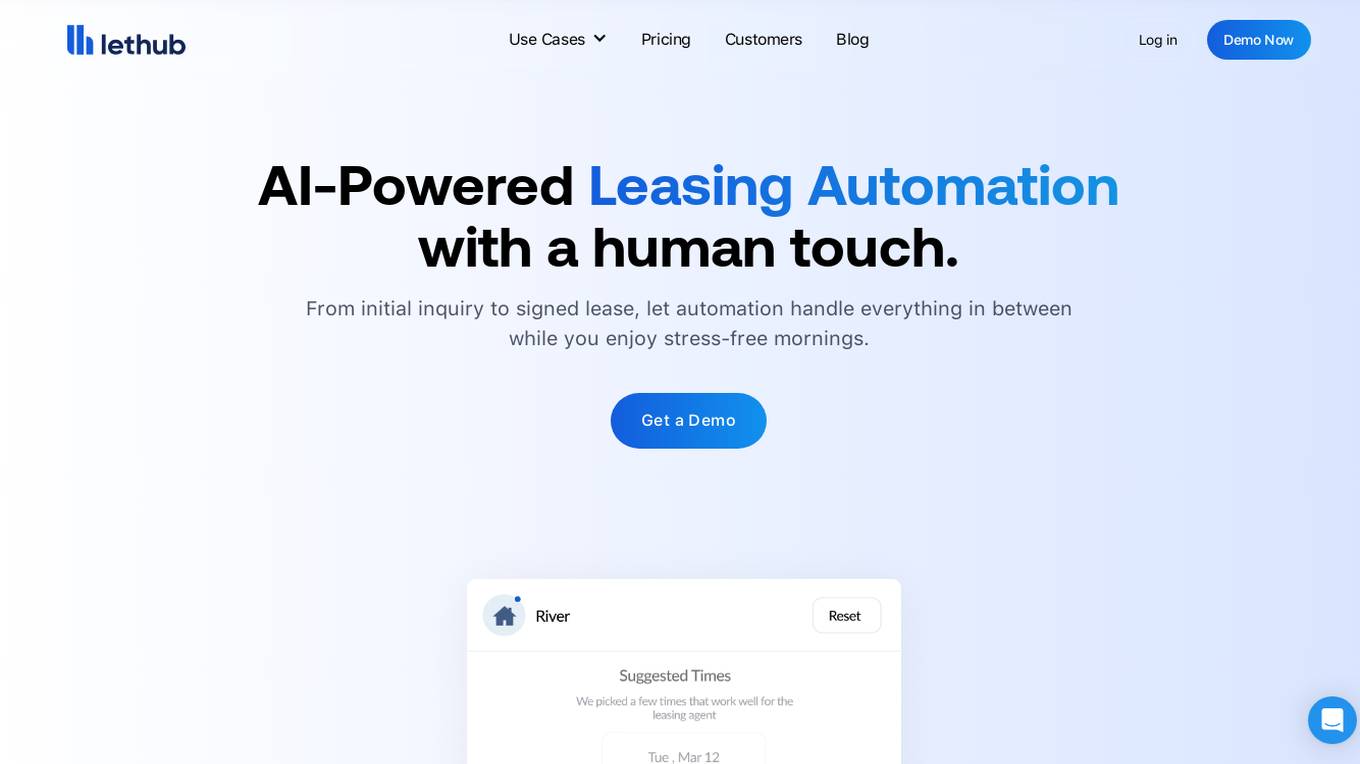
LetHub
LetHub is an AI-powered leasing automation and scheduling tool designed for property management use cases. It streamlines property management operations for multi-family operators, optimizing multifamily management with self-tour enabled features. LetHub offers a robust scheduling engine, AI chatbot capabilities, and automation for capturing leads, nurturing prospects, and converting them into tenants. The tool enhances security with bank-level safety measures and provides features like automatic tour scheduling, two-way calendar sync, open house scheduling, lockbox integration, and more. LetHub aims to revolutionize property management by combining AI automation with a human touch, making the leasing process efficient and stress-free for property managers and tenants alike.
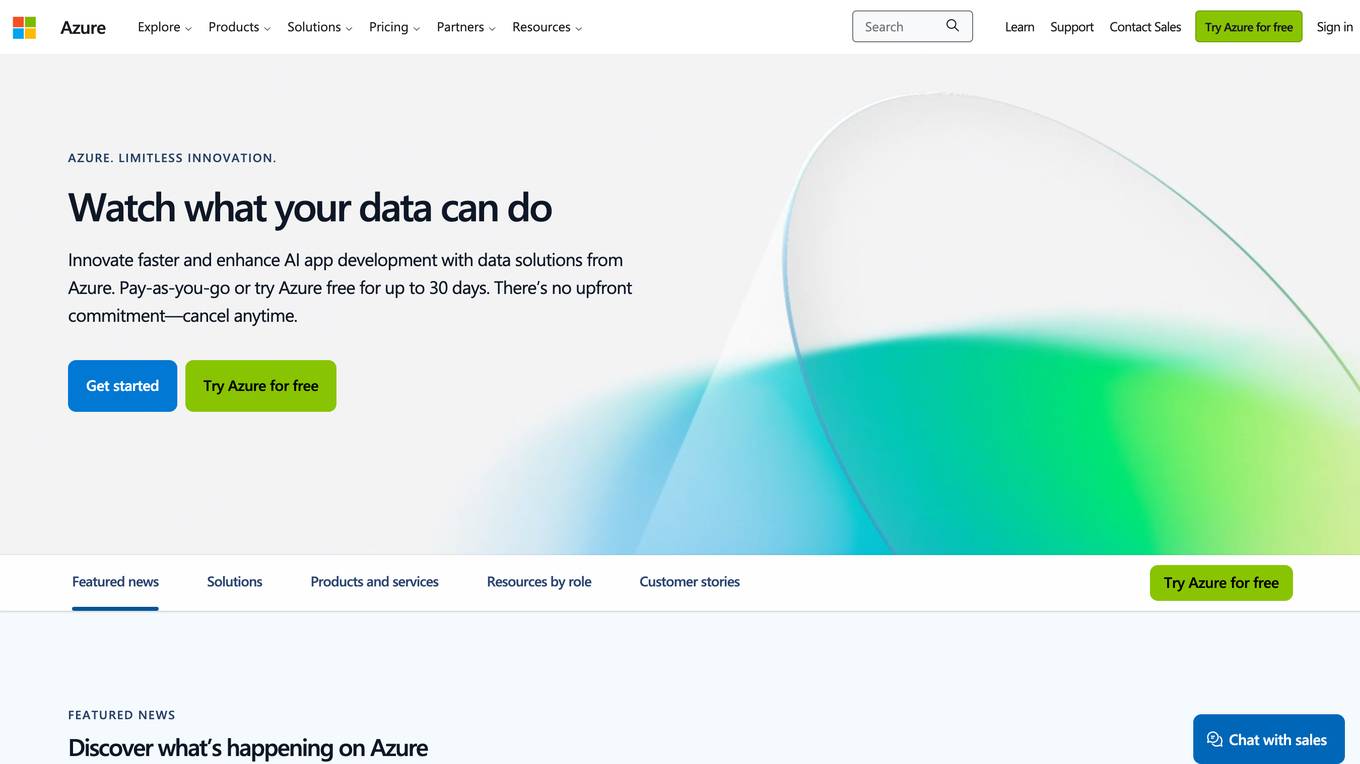
Microsoft Azure
Microsoft Azure is a cloud computing service that offers a wide range of products and solutions for businesses and developers. It provides services such as databases, analytics, compute, containers, hybrid cloud, AI, application development, and more. Azure aims to help organizations innovate, modernize, and scale their operations by leveraging the power of the cloud. With a focus on flexibility, performance, and security, Azure is designed to support a variety of workloads and use cases across different industries.
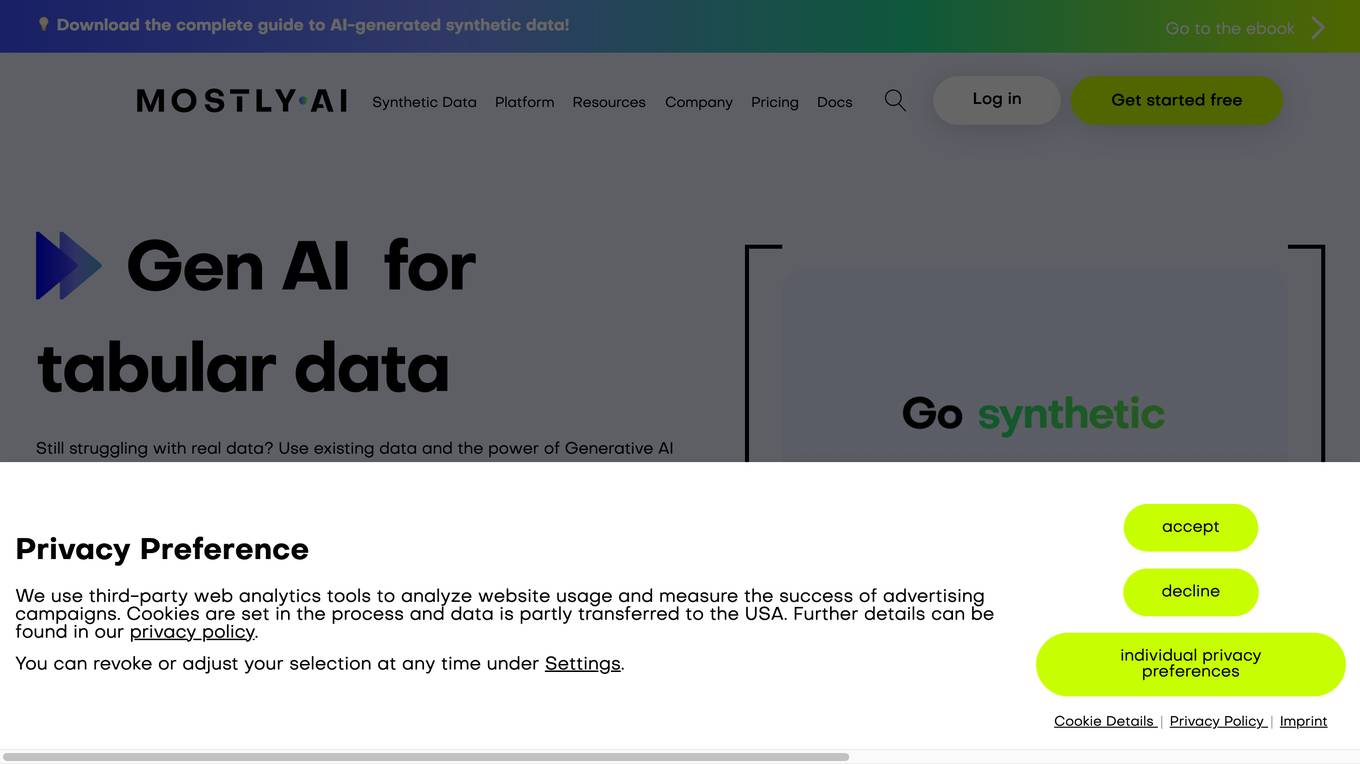
MOSTLY AI Platform
The website offers a Synthetic Data Generation platform with the highest accuracy for free. It provides detailed information on synthetic data, data anonymization, and features a Python Client for data generation. The platform ensures privacy and security, allowing users to create fully anonymous synthetic data from original data. It supports various AI/ML use cases, self-service analytics, testing & QA, and data sharing. The platform is designed for Enterprise organizations, offering scalability, privacy by design, and the world's most accurate synthetic data.
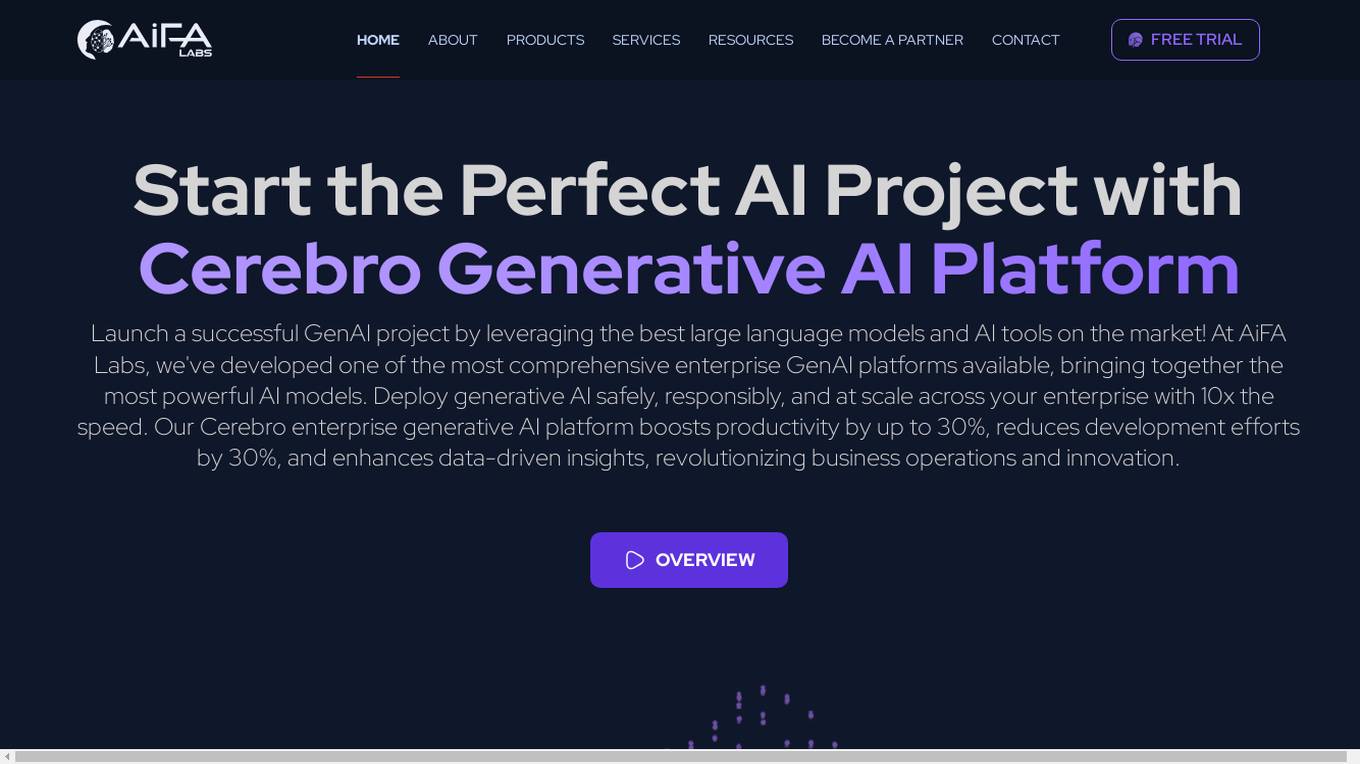
AiFA Labs
AiFA Labs is an AI platform that offers a comprehensive suite of generative AI products and services for enterprises. The platform enables businesses to create, manage, and deploy generative AI applications responsibly and at scale. With a focus on governance, compliance, and security, AiFA Labs provides a range of AI tools to streamline business operations, enhance productivity, and drive innovation. From AI code assistance to chat interfaces and data synthesis, AiFA Labs empowers organizations to leverage the power of AI for various use cases across different industries.
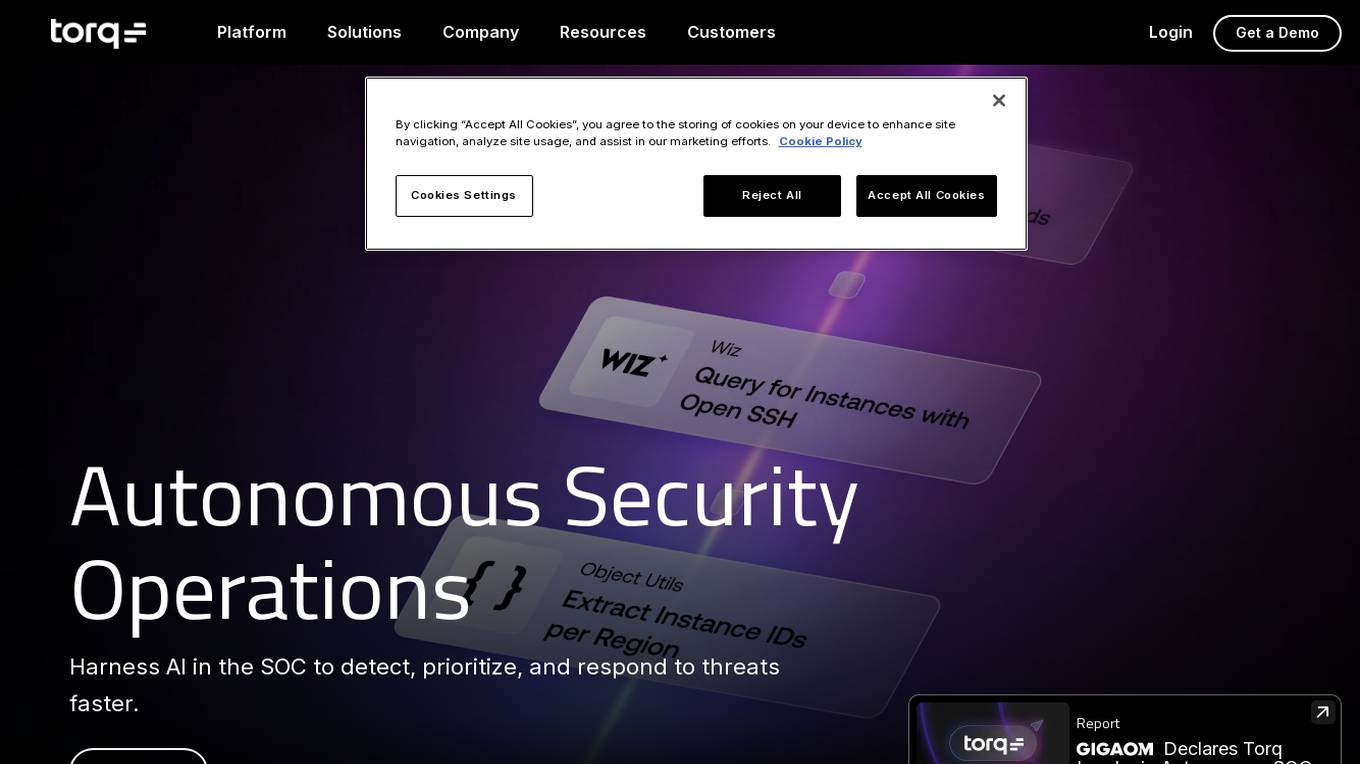
Torq
Torq is an AI-driven platform that offers Security Hyperautomation Solutions, empowering security teams to detect, prioritize, and respond to threats faster. It provides a range of features and capabilities such as AI Agents, AI SOC Analyst, Case Management, and Integrations. Torq is trusted by top security teams worldwide and is recognized for its ability to mitigate alert fatigue, false positives, and staff burnout. The platform is designed to usher in the era of Autonomous SOC by harnessing AI to enhance security operations.
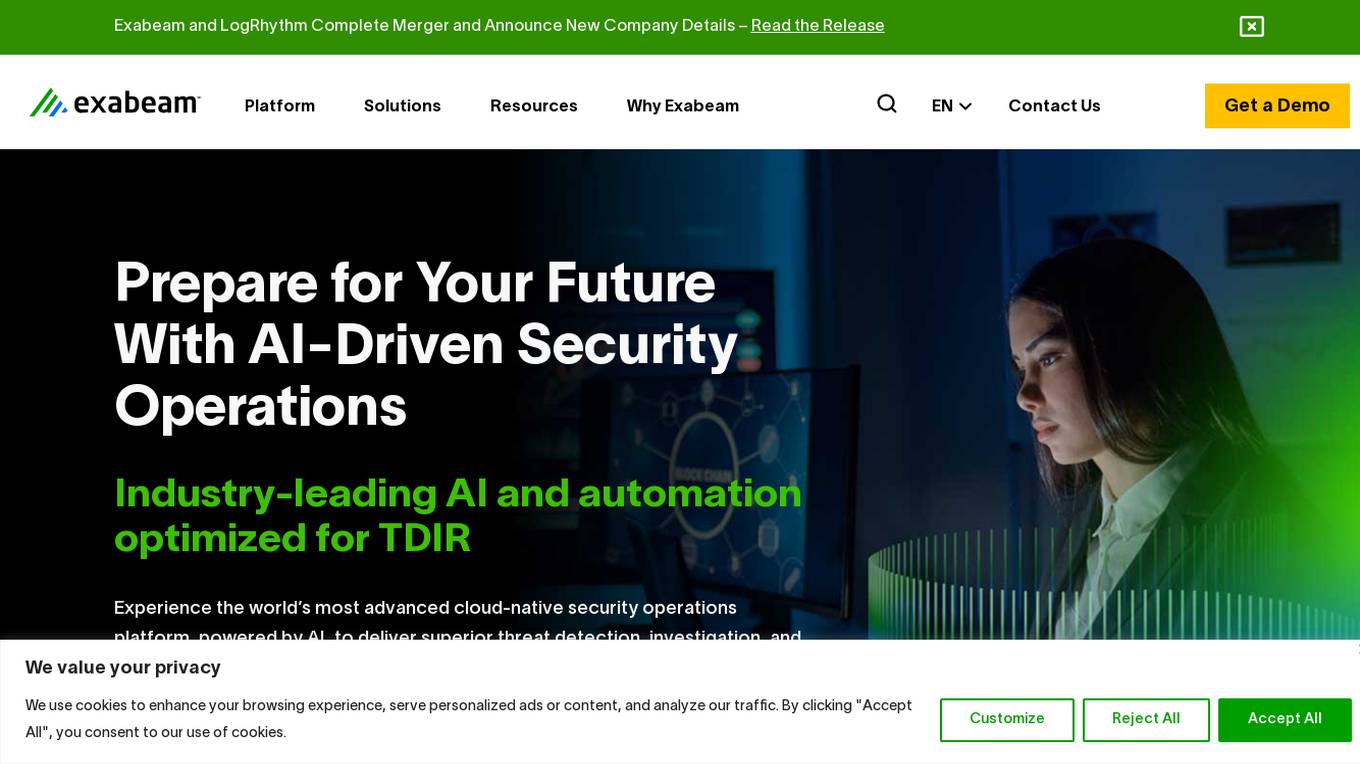
Exabeam
Exabeam is a cybersecurity and compliance platform that offers Security Information and Event Management (SIEM) solutions. The platform provides flexible choices for threat detection, investigation, and response, whether through cloud-based AI-driven solutions or on-premises SIEM deployments. Exabeam's AI-driven Security Operations Platform combines advanced threat detection capabilities with automation to deliver faster and more accurate TDIR. With features like UEBA, SOAR, and insider threat detection, Exabeam helps organizations improve security posture and optimize investments. The platform supports various industries and use cases, offering pre-built content, behavioral analytics, and context enrichment for enhanced threat coverage and compliance.

Fraud.net
Fraud.net is an AI-powered fraud detection and prevention platform designed for enterprises. It offers a comprehensive and customizable solution to manage and prevent financial fraud and risks. The platform utilizes AI and machine learning technologies to provide real-time monitoring, analytics, and reporting, helping businesses in various industries to combat fraud effectively. Fraud.net's solutions are trusted by CEOs, directors, technology and security officers, fraud managers, and analysts to ensure trust and beat fraud at every step of the customer lifecycle.
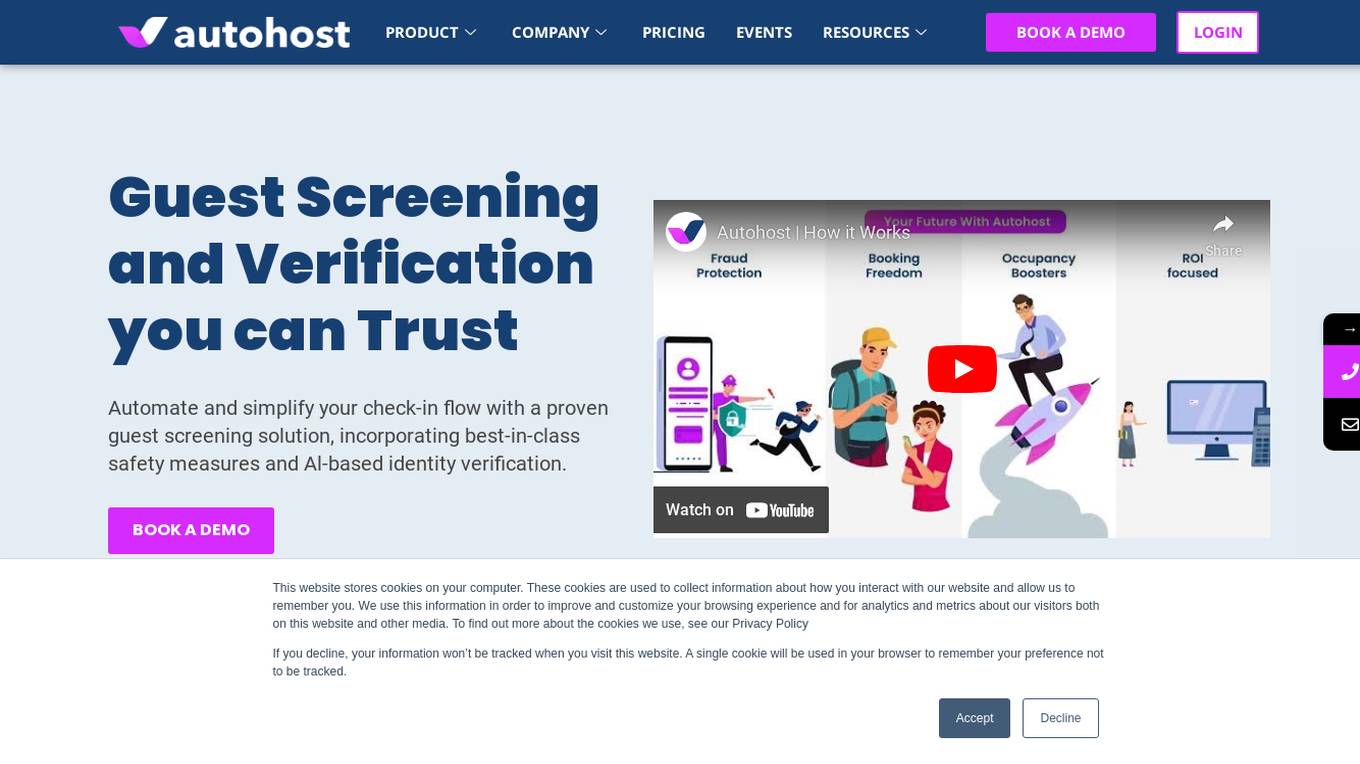
Autohost
Autohost is an AI-powered guest screening and verification platform designed for the hospitality industry. It offers a comprehensive solution to streamline the guest screening process, enhance security, and improve the overall guest experience. By leveraging automated systems and advanced technology, Autohost helps hosts in the hospitality and event industry to reduce risks and ensure a safe environment for their guests.
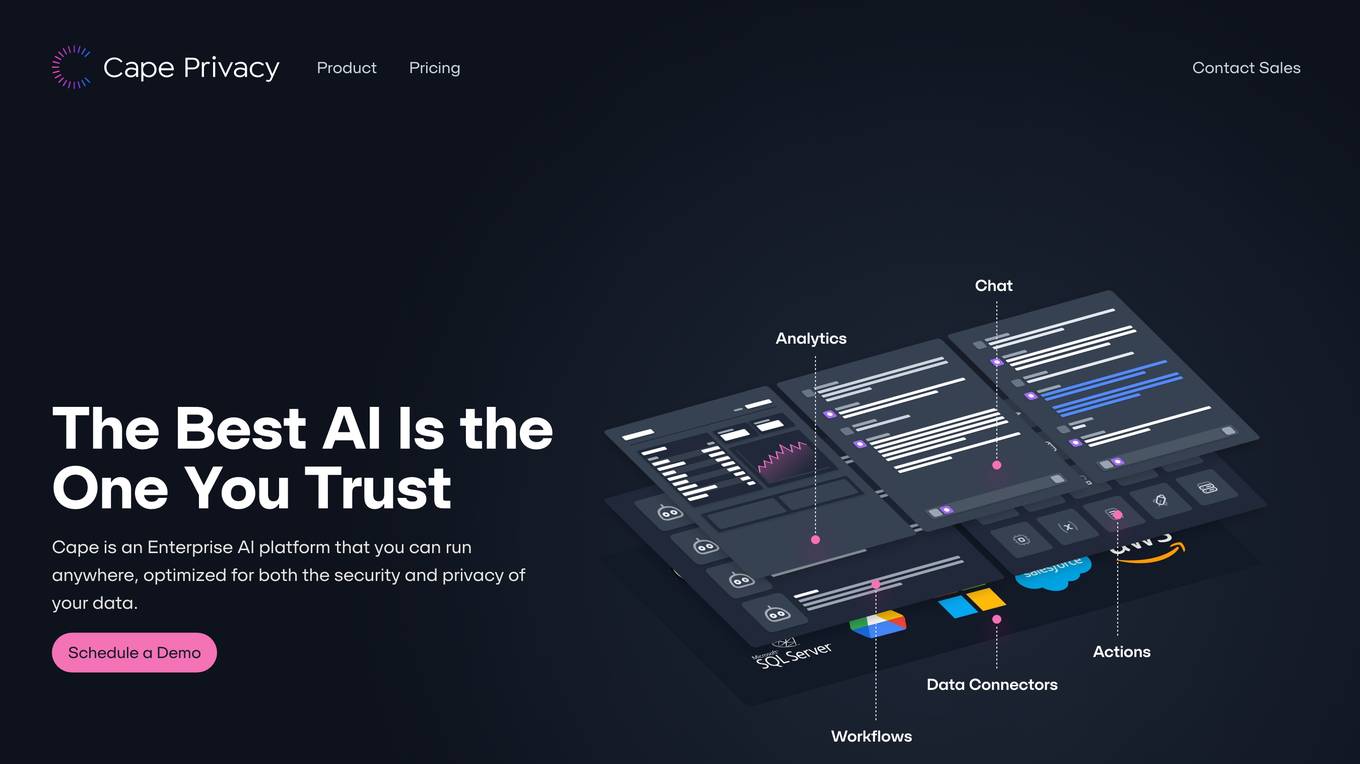
Cape.ai
Cape.ai is an AI-powered platform designed to enhance business process operations in the financial sector. It offers solutions for loan servicing, risk operations, trust operations, and more. The platform enables users to leverage agentic AI for increased efficiency, insights, and automation across various daily operations in financial firms. Cape.ai is built from real-world customer use cases and provides tangible business ROI by integrating structured and unstructured data sources, automating complex manual processes, and offering context-aware insights.
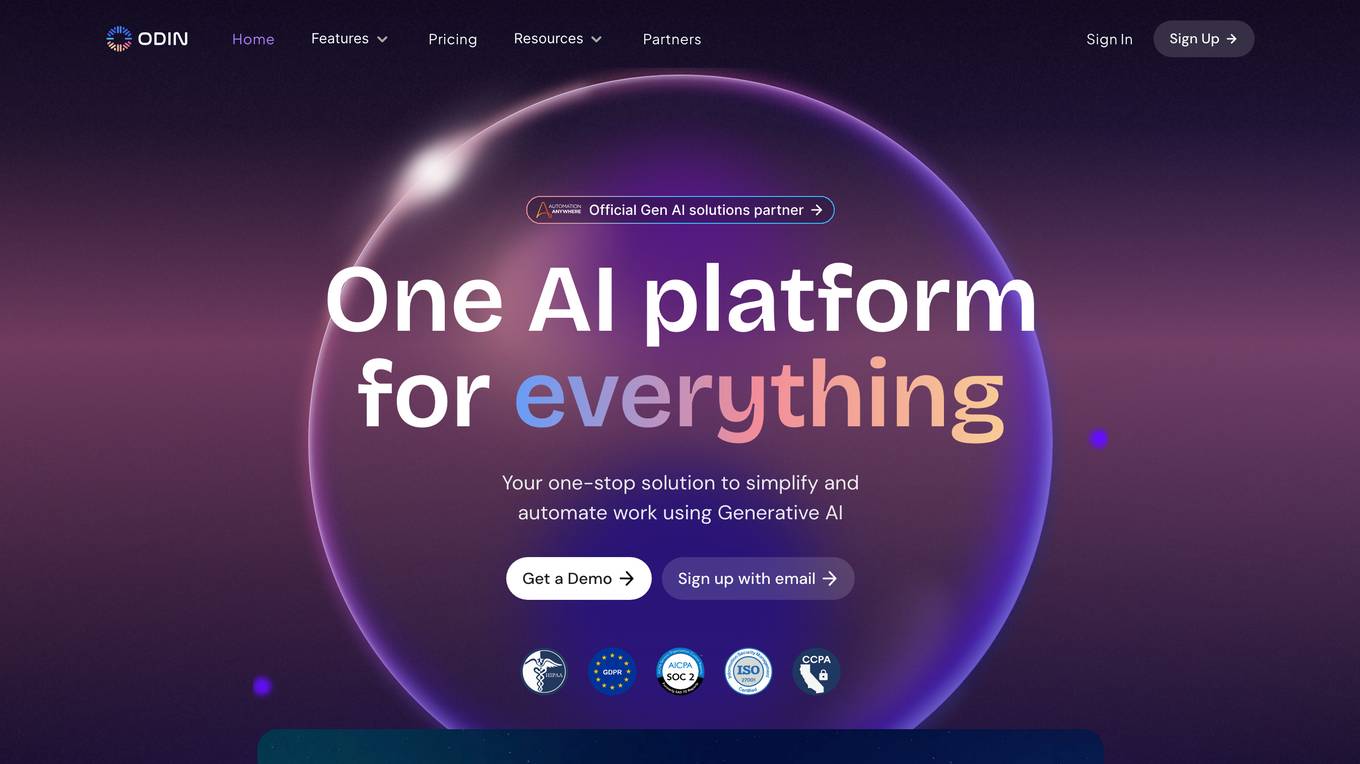
Odin AI
Odin AI is a comprehensive AI platform that offers a range of tools and features to simplify and automate various tasks. It provides solutions for brand compliance, custom templates, guardrails, knowledge graph, model fine-tuning, conversational AI, task automation, meeting note-taking, chatbot building, and more. Odin AI aims to enhance productivity, streamline workflows, and improve decision-making across different industries and use cases.

Dropzone AI
Dropzone AI is an award-winning AI application designed to reinforce Security Operations Centers (SOCs) by providing autonomous AI analysts. It replicates the techniques of elite analysts to autonomously investigate alerts, covering various use cases such as phishing, endpoint, network, cloud, identity, and insider threats. The application offers pre-trained AI agents that work alongside human analysts, automating investigation tasks and providing fast, detailed, and accurate reports. With built-in integrations with major security tools, Dropzone AI aims to reduce Mean Time to Respond (MTTR) and allow analysts to focus on addressing real threats.

Distribute
Distribute is an AI-powered Deal Room application designed to help sales teams streamline their sales process and close deals faster. It automatically turns sales conversations into follow-ups, business cases, and action plans, enabling users to win more deals with less effort. The platform offers features such as AI meeting synthesis, personalized action points, engagement tracking, custom ROI visualizations, tailored value messaging, and immediate sharing capabilities. Distribute also provides advantages like saving time and money, increasing close rates, enabling real-time collaboration, building AI-powered deals, and offering branded templates for content creation. However, it has disadvantages such as limited customization options, potential security concerns, and dependency on internet connectivity.
1 - Open Source AI Tools
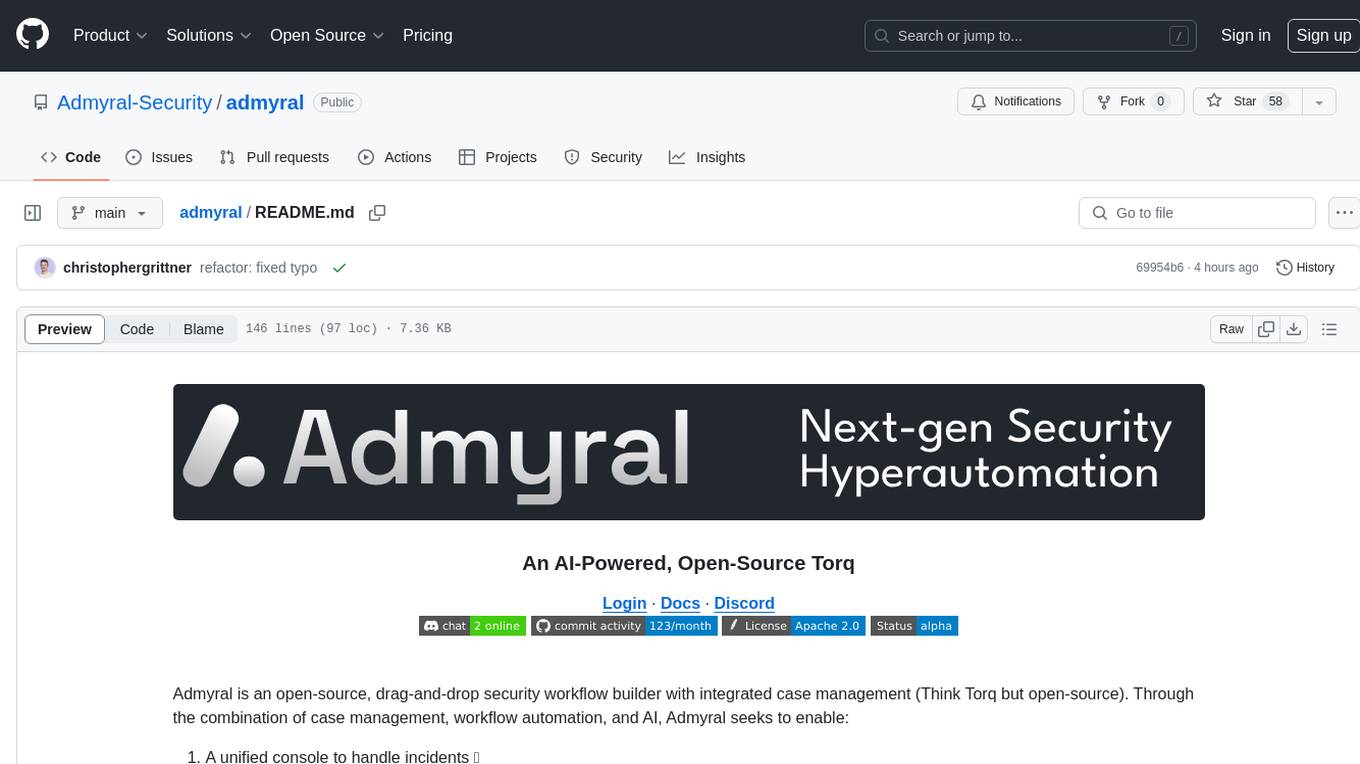
admyral
Admyral is an open-source Cybersecurity Automation & Investigation Assistant that provides a unified console for investigations and incident handling, workflow automation creation, automatic alert investigation, and next step suggestions for analysts. It aims to tackle alert fatigue and automate security workflows effectively by offering features like workflow actions, AI actions, case management, alert handling, and more. Admyral combines security automation and case management to streamline incident response processes and improve overall security posture. The tool is open-source, transparent, and community-driven, allowing users to self-host, contribute, and collaborate on integrations and features.
20 - OpenAI Gpts
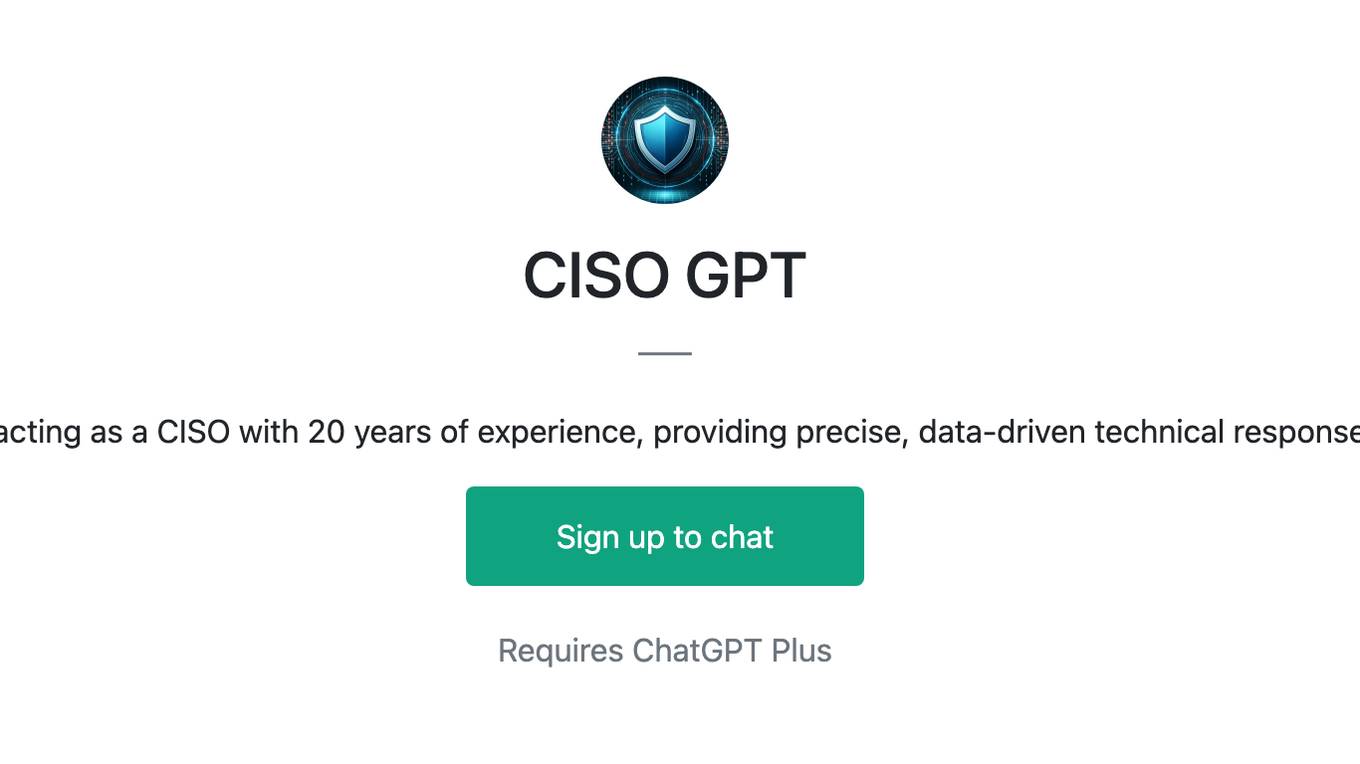
CISO GPT
Specialized LLM in computer security, acting as a CISO with 20 years of experience, providing precise, data-driven technical responses to enhance organizational security.

CISO AI
Team of experts assisting CISOs, CIOs, Exec Teams, and Board Directors in cyber risk oversight and security program management, providing actionable strategic, operational, and tactical support. Enhanced with advanced technical security architecture and engineering expertise.

Mónica
CSIRT que lidera un equipo especializado en detectar y responder a incidentes de seguridad, maneja la contención y recuperación, organiza entrenamientos y simulacros, elabora reportes para optimizar estrategias de seguridad y coordina con entidades legales cuando es necesario
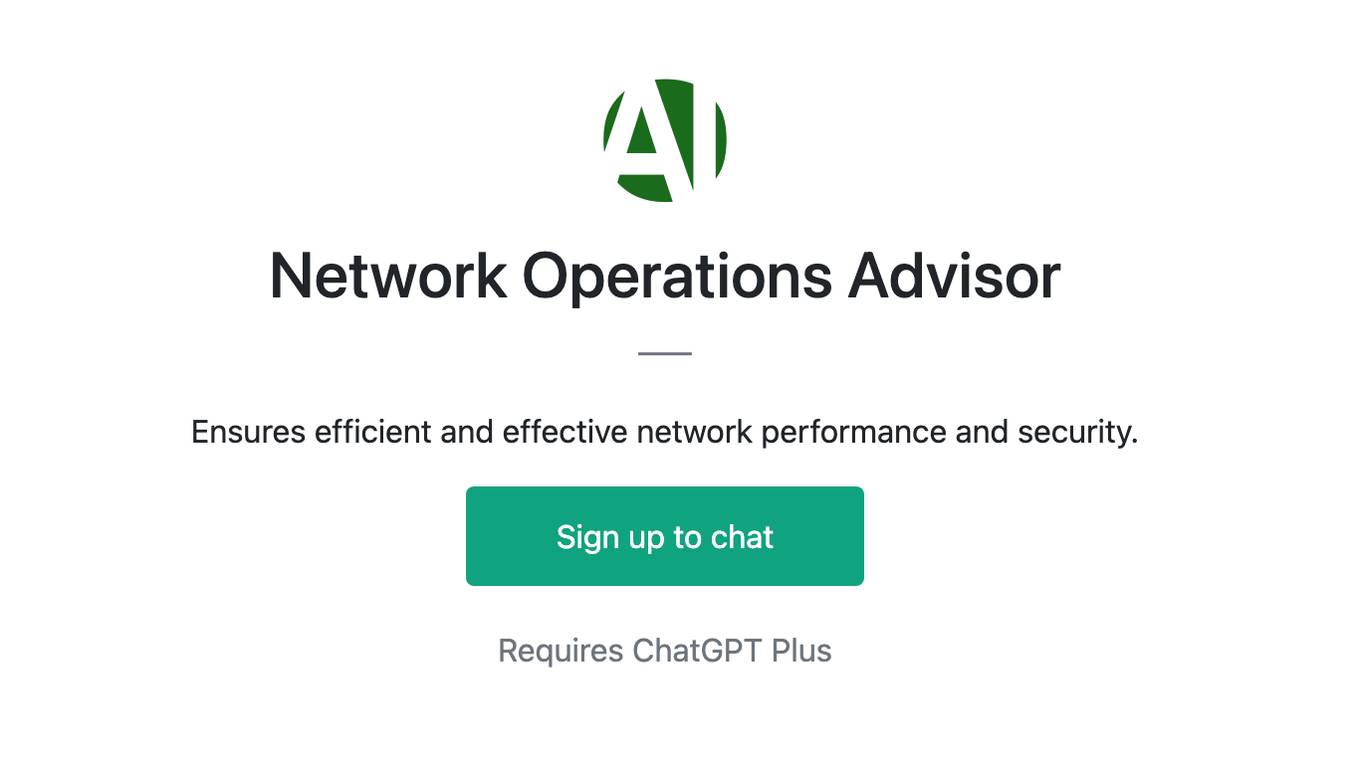
Network Operations Advisor
Ensures efficient and effective network performance and security.
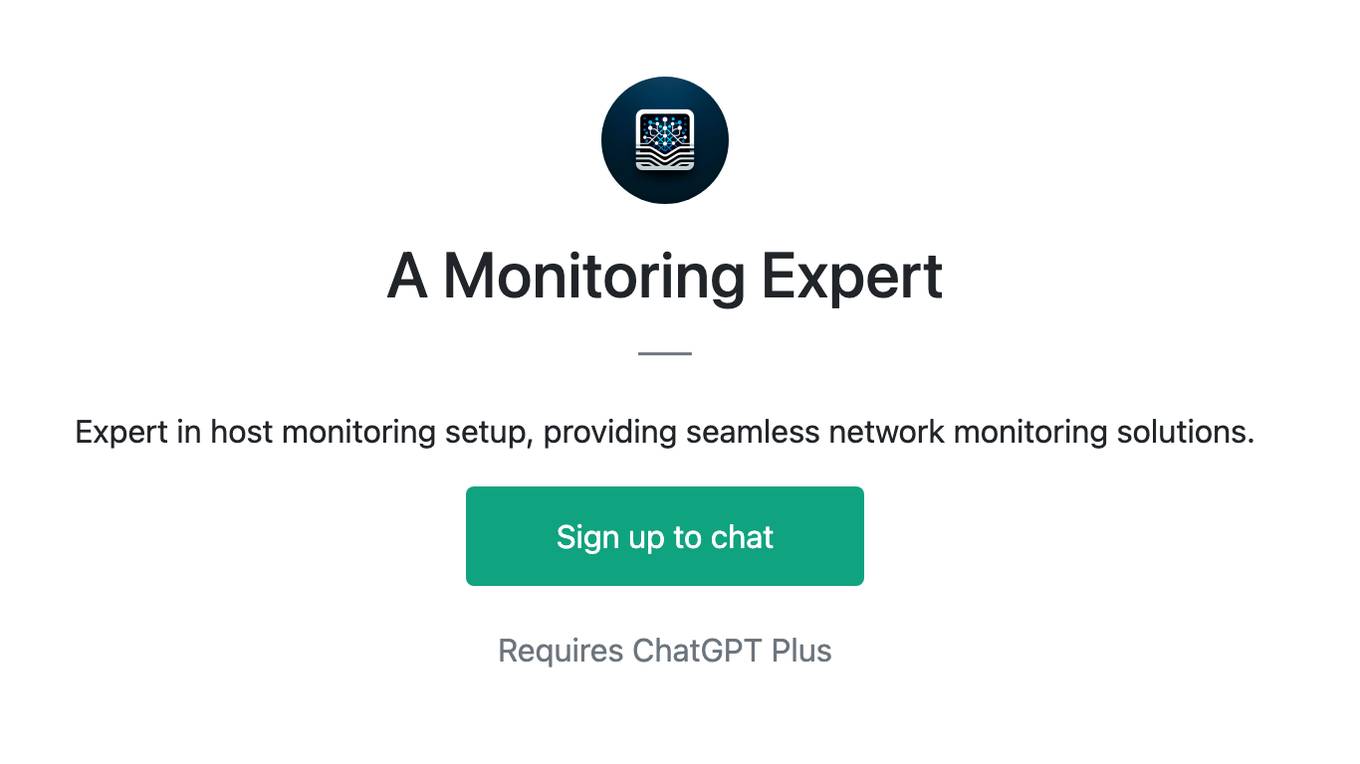
A Monitoring Expert
Expert in host monitoring setup, providing seamless network monitoring solutions.
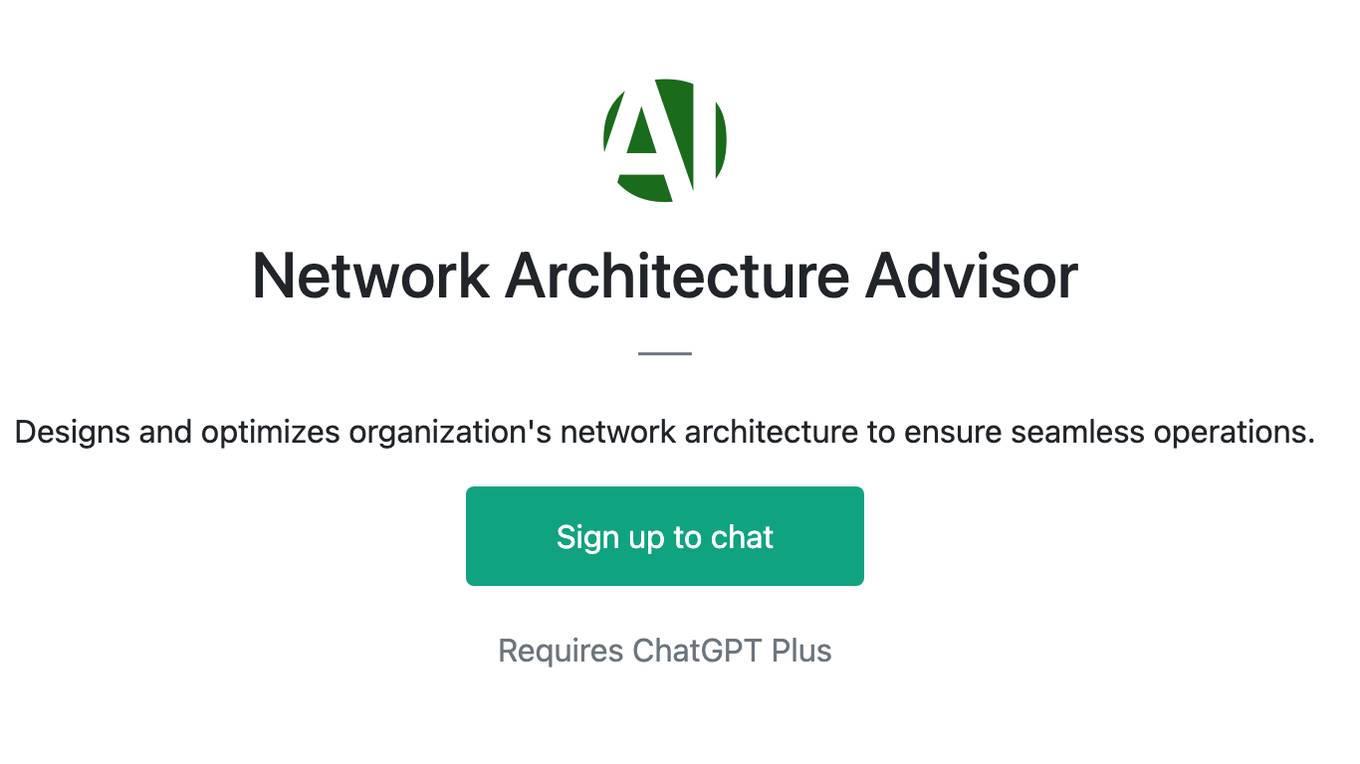
Network Architecture Advisor
Designs and optimizes organization's network architecture to ensure seamless operations.
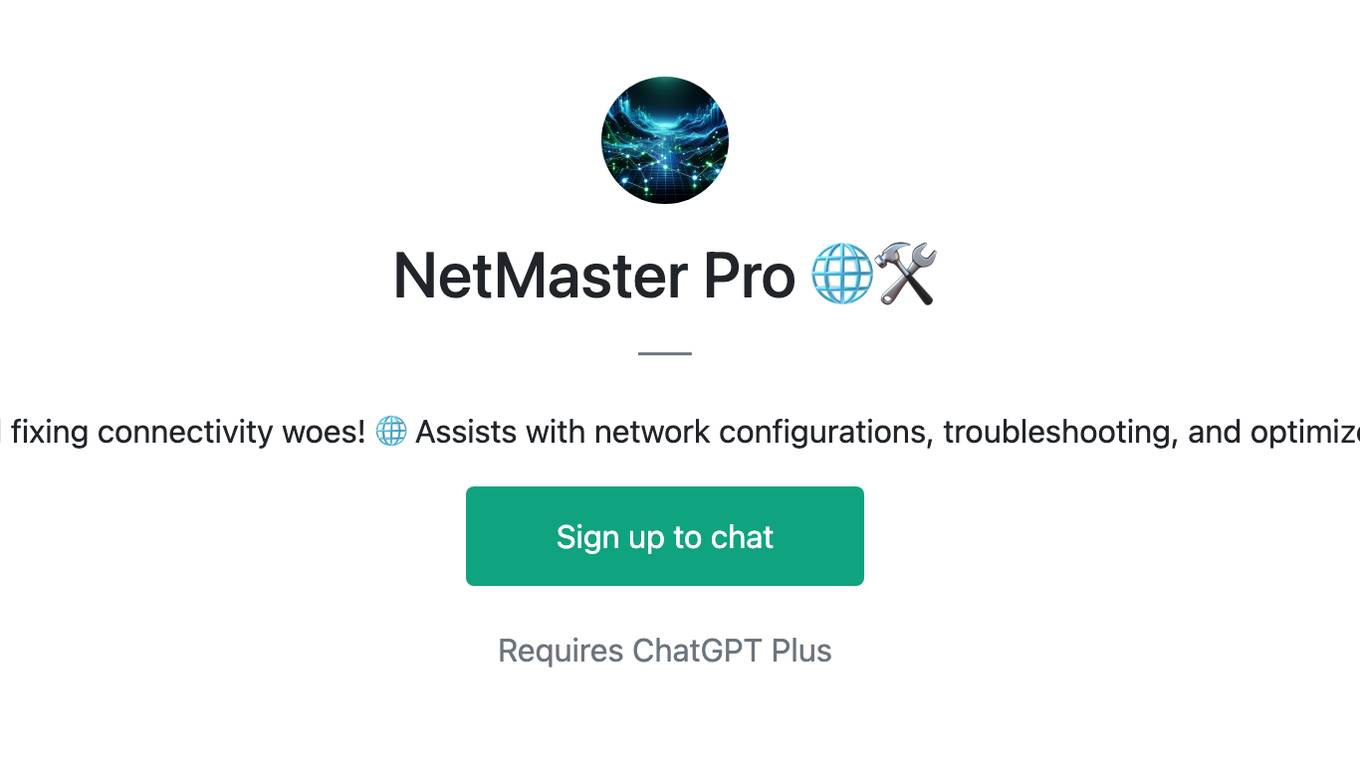
NetMaster Pro 🌐🛠️
Your AI network guru for setup and fixing connectivity woes! 🌐 Assists with network configurations, troubleshooting, and optimizes your internet experience. 💻✨

Wireless Communications Advisor
Advises on wireless communication technologies to enhance organizational efficiency.
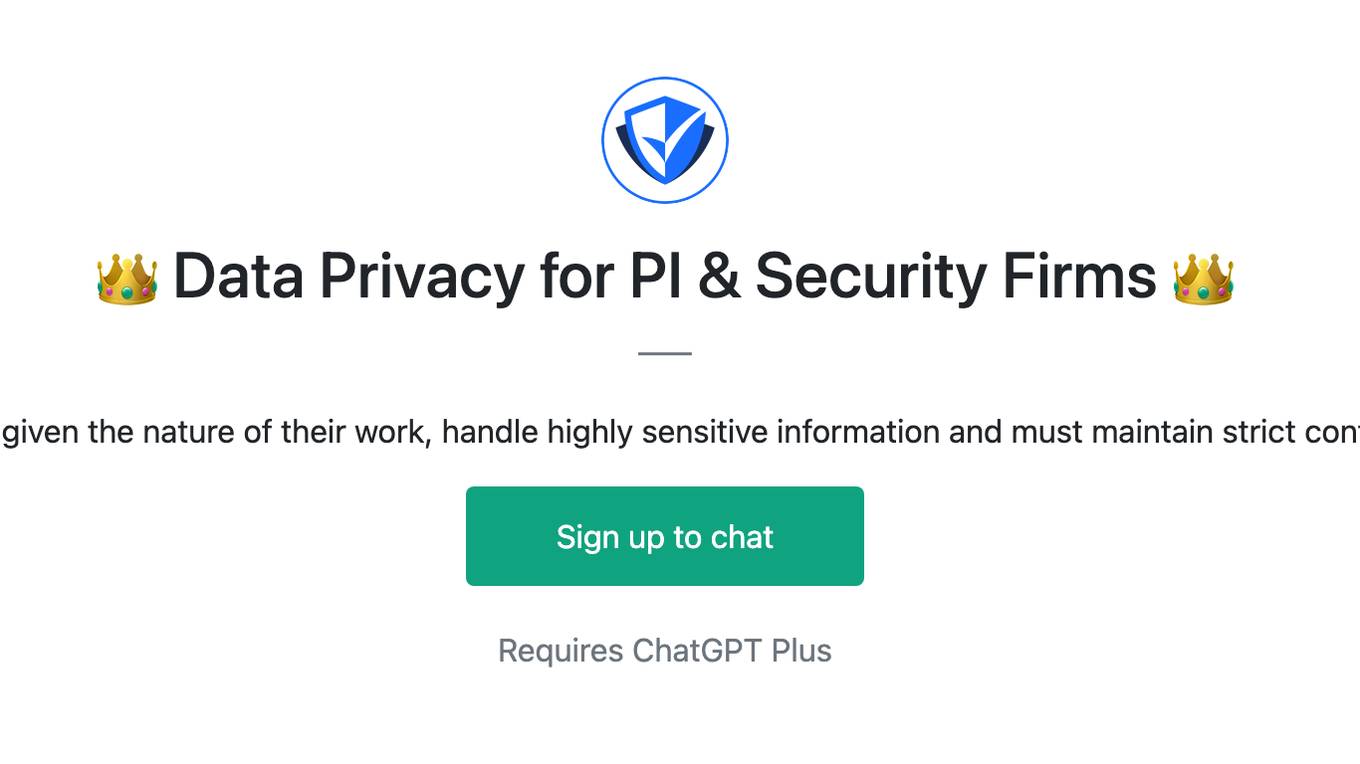
👑 Data Privacy for PI & Security Firms 👑
Private Investigators and Security Firms, given the nature of their work, handle highly sensitive information and must maintain strict confidentiality and data privacy standards.

Website Security with Jim Walker | HackRepair.com
Jim Walker "The Hack Repair Guy" is a WordPress Security Expert. He Manages HackRepair.com and HackGuard.com, a Malware Cleanup and WordPress Management Service.

👑 Data Privacy for Watch & Jewelry Designers 👑
Watchmakers and Jewelry Designers, high-end businesses dealing with valuable items and personal details of clients, making data privacy and security paramount.
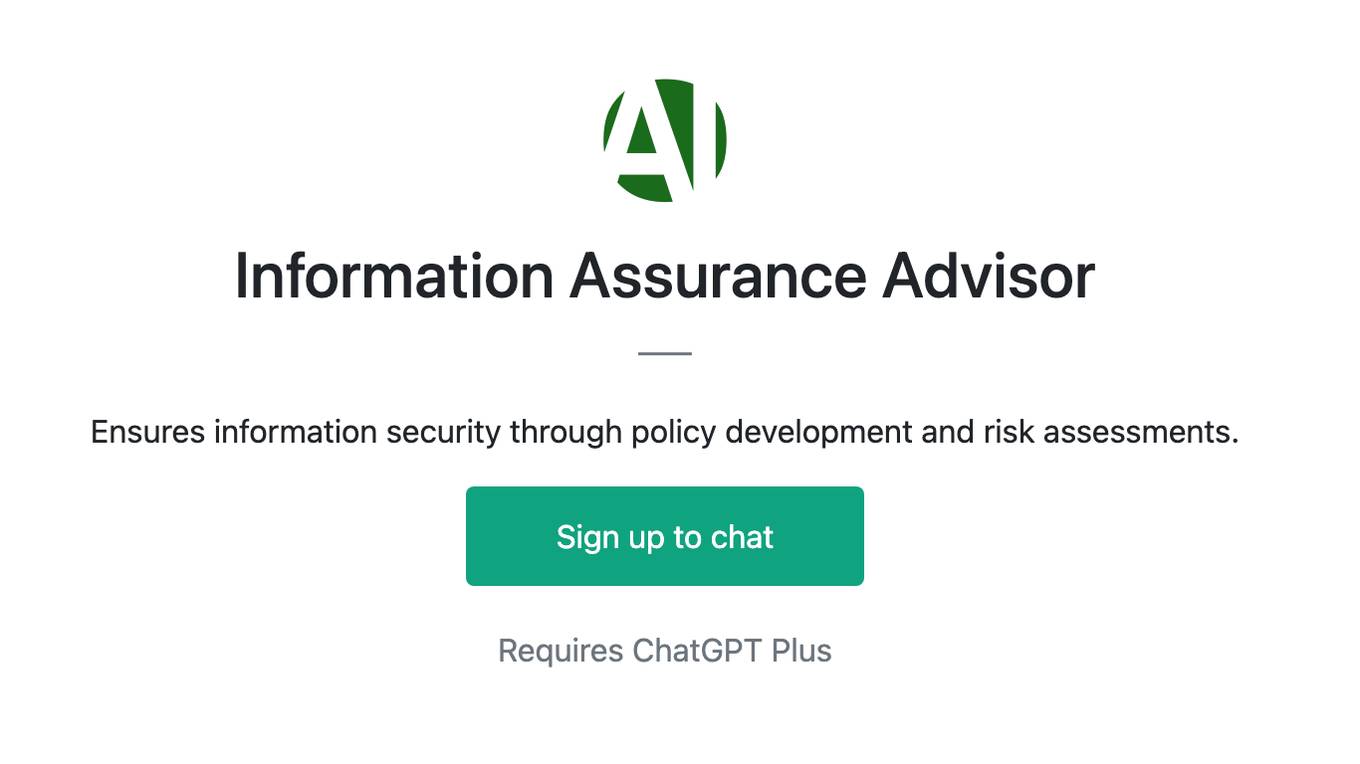
Information Assurance Advisor
Ensures information security through policy development and risk assessments.
